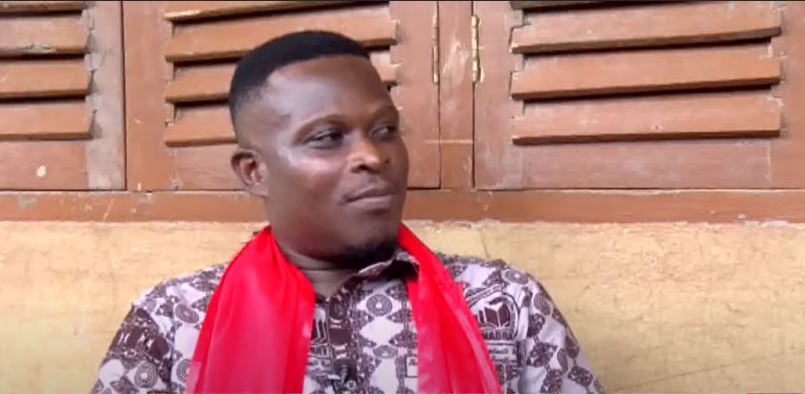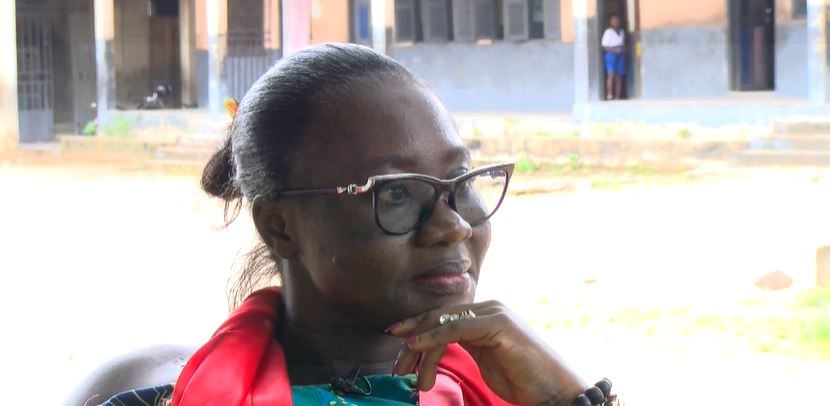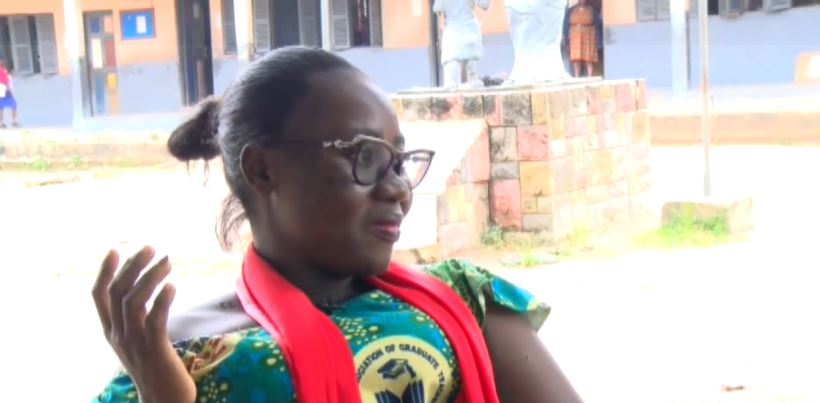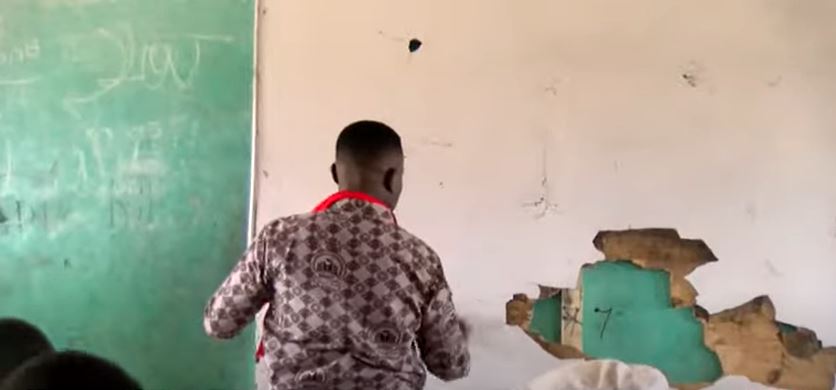It is undeniable that behind the most successful men and women in our society, there are many great teachers.
But teachers' daily sacrifice and hard work in shaping the minds and lives of future leaders is inadequately rewarded.
Speaking in this edition of the JoyNews Living Standard Series, some teachers shared that the current harsh economic conditions have worsened their situation.
Many find solace in the popular African proverb that a teacher’s reward is in heaven.
This saying, they say, holds some truth because although teaching is an essential profession, teachers receive inadequate pay.
For the past 12 years, Moses Aryee has been instructing Junior High School (JHS) students in a public school at Kpobikope in the Greater Accra Region.
He is extremely passionate about his work and, despite his meagre pay, he has no plans to pursue any other line of work.
“I have been teaching for 12 years; it’s my passion. It was okay when I started - when I was single, the money that was coming was enough to take care of me and even my mother,” he said.

Moses gets paid GH¢2,500 per month. However, GH¢1000 is taken out of his paycheck to pay off debts.
His wife, mother and four children all depend on his monthly balance of GH¢1,500.
“If I am to put all the loans together, I have about GH¢39,000 to pay – the one at Controller is deducting around GH¢715 and the one with my bank is deducting GH¢300, making GH¢1,015.”
But he is struggling because of the state of the economy. Each day, Moses spends GH¢50 cedis on food and transportation.

His pay is spent even before he considers his other responsibilities.
“I used to spend GH¢5 on food but now GH¢5 cannot buy the amount of food I used to buy due to increase in prices of goods and services. Normally, I buy kenkey and fish with GH¢5 and this one excludes water.
“But now the GH¢5 cannot buy the kenkey that I used to buy so you need at least GH¢7. For my side, I have to regulate the way I spend, especially on feeding,” he added.
The JHS teacher said his wife, who is a nurse, supports him fully. He says she is aware of his financial situation and is entirely behind him.
For him, without his wife’s help, he would have died trying to survive.
“The only thing I take consolation from is to have a woman that understands me because if I was married to a woman that doesn’t understand the situation at hand, the stress I am going through would have killed me by now. It’s not easy at all,” he bemoaned.
His colleague, Ernestina, teaches RME and English at a Public School at Amasaman.

She teaches more than 300 students every term. She is married with a son and lives in a rented apartment.
She says, apart from her family, interacting with the students is always the highlight of her day.
“It’s not been smooth and it’s not been rough. When you come in contact with the kids, they make you forget whatever you’re going through; they will make some funny things that will make you laugh out, that will make you feel good.
But her smile faded while trying to explain her predicament as a teacher.

She earns GH¢1,800 a month but is paying off loans so, at the end of every month, her disposable income is GH¢600.
This money is used to pay for meals, childcare, transportation, home maintenance, and caring for her mother.
“It’s funny how we do it but we manage. There is nothing you can do without a loan. I take loans to pay my rent and my kids’ school fees. I pay like GH¢820 to GH¢900 a month to repay my loans.
“We just don’t know how we do it but we survive because after whatever is taken out, transport fare isn’t taken out. Gone were the days when transportation was GH¢2 on the same salary. Now, it has increased to GH¢4 on the same salary.
“Foodstuffs have been increased on the same salary, diapers have been increased. Fortunately for me, I am a local girl so I prepare local food for my son,” she said in the interview.
She, however, beamed with smiles when she shifted the conversation to her students.
The stories of Moses and Ernestina reflect why Teacher Unions have been agitating for Cost of Living Allowance (COLA).
Teacher unions, particularly NAGRAT and GNAT, say although 20% of their salary as COLA is small, it will provide some relief.
“COLA, when it is paid, will ease the stress on me. Even if 20% is given, at least I know if I am not getting at all, I will get between 200 and 400. At least it can cater for my transportation,” Moses Aryee shared.
For Ernestina, “the 20% we are asking for is nothing much. We just need a support system till the budget is read – that is all we are asking for.”
“I went home last weekend and told my mum I had no money. She said it’s too early in the month to request money because I had recently received my salary. She just doesn’t understand why I should say I don’t have money at that time of the month,” she added.
Latest Stories
-
Western Region: NDC youth wing embarks on phase 2 of ‘retail campaign’
22 mins -
Action Chapel International holds annual Impact Convention in November
23 mins -
Jana Foundation urges young women to take up leadership roles
28 mins -
All set for Joy FM Prayer Summit for Peace 2024
39 mins -
Managing Prediabetes with the Help of a Dietitian
58 mins -
Joy FM listeners criticise Achiase Commanding Officer’s election comment
1 hour -
Legal Aid Commission employees threaten strike over poor working conditions
1 hour -
Ghana ranked 7th globally as biggest beneficiary of World Bank funding
2 hours -
IMF board to disburse $360m to Ghana in December after third review
2 hours -
Former Bono Regional NPP organiser donates 13 motorbikes to 12 constituencies
2 hours -
Securities industry: Assets under management estimated at GH¢81.7bn in quarter 3, 2024
2 hours -
Gold Fields Ghana Foundation challenges graduates to maximise benefits of community apprenticeship programme
3 hours -
GBC accuses Deputy Information Minister Sylvester Tetteh of demolishing its bungalow illegally
3 hours -
Boost for education as government commissions 80 projects
4 hours -
NAPO commissions library to honour Atta-Mills’ memory
4 hours

